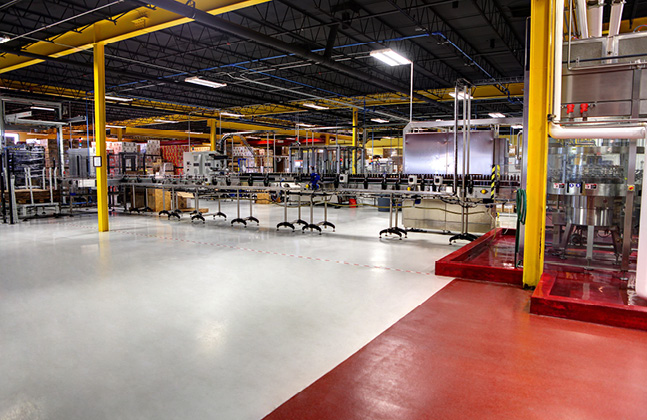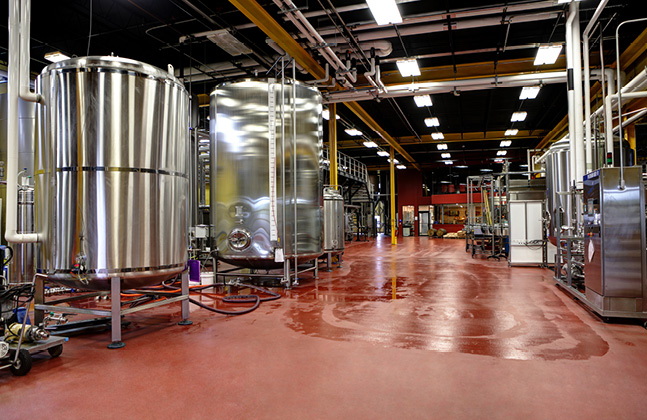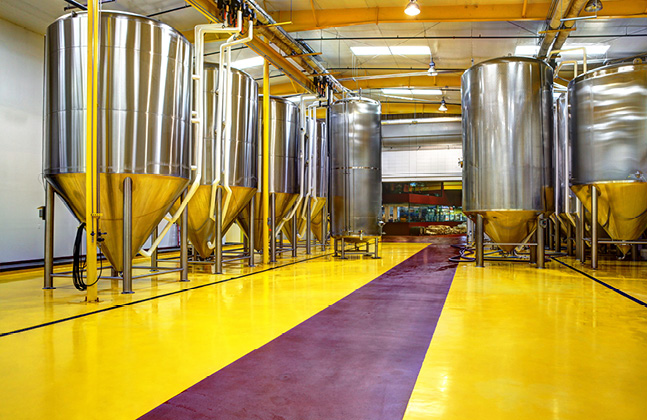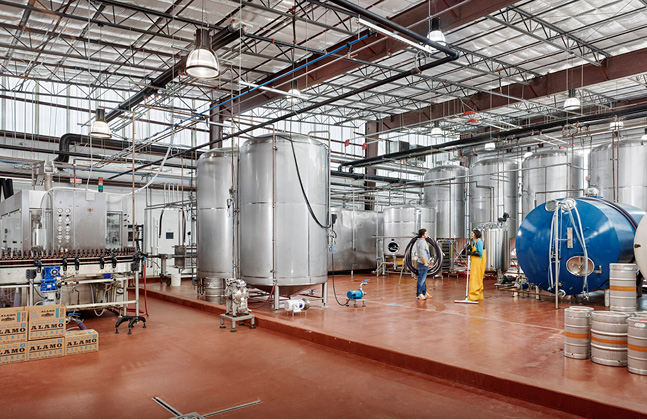To mark this year’s International Beer Day on the 5th August, which celebrates brewers the world over, Flowcrete India has compiled the following flooring advice to help beer producers ensure that the finish beneath their feet will provide a clean and reliable surface on which to brew the perfect pint!
The beer industry is booming around the world at the moment, and India in particular is seeing a signifiacnt amount of growth in this sector! For example in 2014-15 286 million cases (representing a 6% growth) were produced to meet the ever-increasing demand for Indian brewed beers.
This boom means that India’s brewery industry has to ramp up production volumes while simultaneously ensuring that high standards are maintained throughout the lifecycle of each keg, bottle or can of beer.
Getting a brewery’s building materials right is critical to this, as if any aspect of a facility fails then it could not only interrupt the daily operational activity, but may even pose a dangerous contamination risk! Choosing the optimum floor finish is central to ensuring a hygienic, effective brewery, as if there are cracks in the finish then it can quickly start to harbour bacteria, mould, dust and grime.
To avoid this, all brewing and kegging rooms need a floor that meets the following criteria in order to provide sufficient protection against the challenging on-site conditions it will be faced with:
1. Impact Resistance
The floor needs to be robust enough to withstand the continuous impact, wear and abrasions from kegs, hose ends, barrels, pallets, trolleys and forklifts and the chosen system needs to be able to maintain a functional finish despite point loading from heavy equipment operating at full capacity.
2. Anti-slip
Breweries are inherently slippery places, with spillages and frequent cleaning often leading to excess water onsite. The floor should be positively textured in order to enhance traction underfoot, minimising any potential slip risks and safeguarding the health of employees.
3. Thermal Shock Resistant
Excellent resistance to thermal shock is required to survive steam cleaning and the extreme temperatures within a brewery. If the floor is not thick and durable enough then sudden changes in heat can quickly cause cracks to appear in the finish.
4. Chemical resistant
The brewing process necessitates a variety of chemicals, salts, yeast, alcohol, malt enzymes, brewing sugars, acids, cleaning agents and by-products which are heated, moved, mixed and mashed onsite. Should these substances spill onto the floor in sufficient quantities then they could erode the surface layer of an insufficiently robust finish.
5. Cleanability
Spillages that are left unaddressed or water left to pond are prime causes of bacterial contamination. Floors should be seamless, impervious, sloped to drains and coved along the edges to help the cleaning routine quickly and effortlessly remove excess liquid, unwanted substances and contaminants out of the area.
6. Antimicrobial
Antimicrobial flooring solutions are available to make brewery floors as hygienic as possible. Specialist resin systems can have a powerful bactericidal additive incorporated within the floor to discourage the growth of harmful microorganisms.
7. Easy to Maintain
A busy brewery needs a reliable floor area, as otherwise frequent repairs or an early refurbishment can lead to long periods of unprofitable downtime. Equally the ability of the floor to speed up the cleaning process helps to reduce labour costs and means that there is even more time available to get on with the vital task of producing case after case of high quality beer.
A long-lasting, easy to maintain floor can in fact be a business advantage in the long run, as the maintenance itself will require less time, energy and resources while the initial cost of the coating can be divided into many years of effective surface – making it cheaper over time than alternative materials that will fail sooner.








